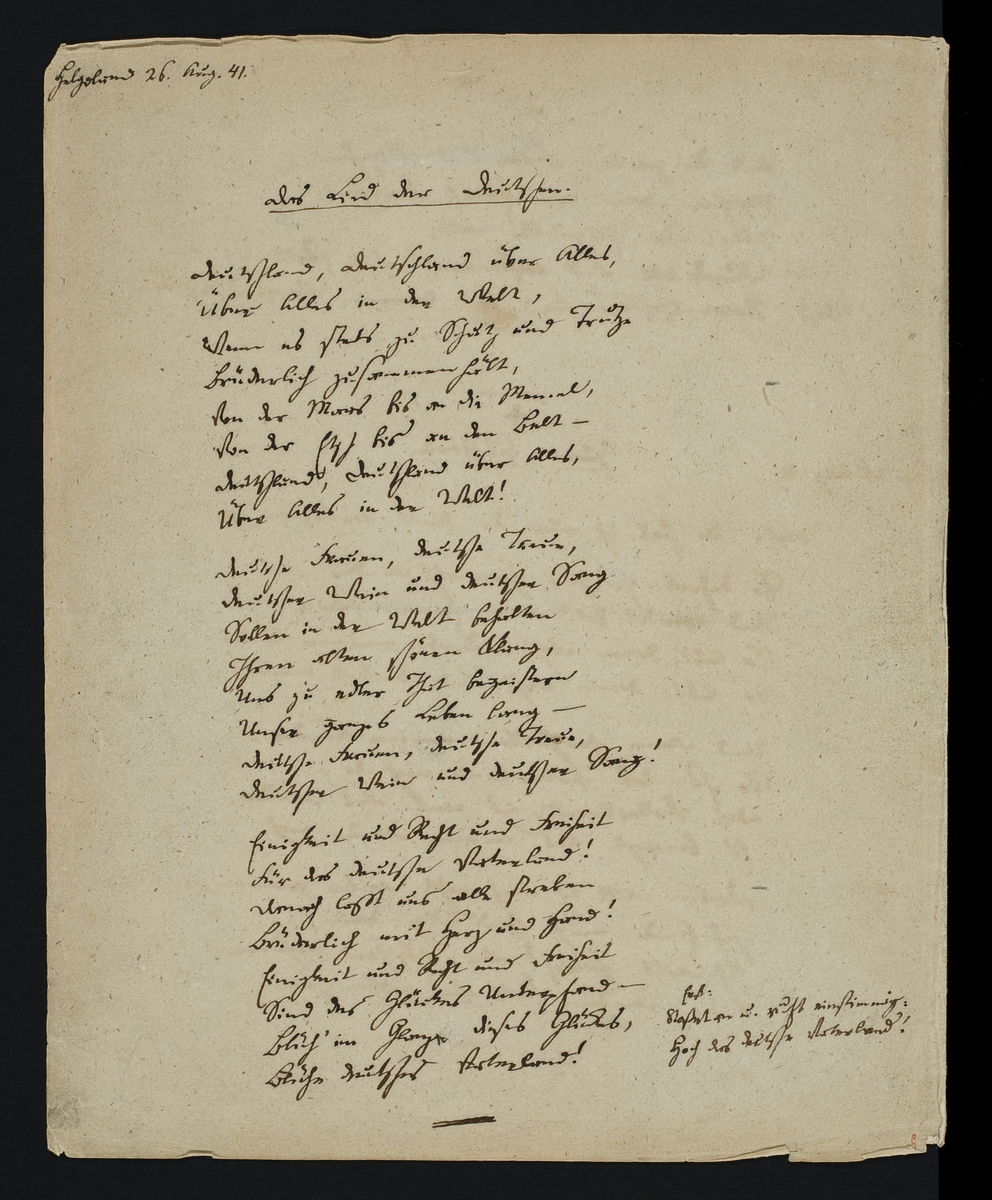August Heinrich Hoffmann von Fallersleben, “Das Lied der Deutschen” (1841)
Abstract
The lyrics to the German national anthem, “Das Lied der Deutschen” [“The Song of the Germans”], were written by August Heinrich Hoffmann von Fallersleben (1798–1874) and adapted to the melody of the Austrian anthem, “Gott erhalte Franz den Kaiser” [God Save Franz the Emperor], composed by Joseph Haydn (1732–1809). The lyrics show the clear influence of the French Revolution, especially the idea of “liberté, égalité, fraternité” in the third stanza. The “Deutschlandlied” was an inherently nationalist and liberal anthem that was sung during the Revolution of 1848. Despite or because of its antimonarchical tenor, it became an increasingly popular patriotic song during the German Empire [Kaiserreich]. It was officially adopted as the national anthem of the Weimar Republic in 1922. After 1933, the Nazis continued to play the first stanza, in addition to their own party anthem (the Horst Wessel Lied). It still serves as the national anthem for today’s Federal Republic of Germany, but only the third stanza is sung.
Source
Germany, Germany above all,
Above all in the world,
When,
for protection and defense,
It always stands brotherly
together.
From the Meuse to the Neman,
From the Adige to the
Belt,
Germany, Germany above all,
Above all in the world!
German women, German loyalty,
German wine and German
song,
Shall retain in the world
Their old beautiful
chime
And inspire us to noble deeds
During all of our
life.
German women, German loyalty,
German wine and German
song!
Unity and justice and freedom
For the German
fatherland!
Towards these let us all strive
Brotherly with
heart and hand!
Unity and justice and freedom
Are the
safeguards of fortune;
Flourish in the radiance of this
fortune,
Flourish, German fatherland!
Source of English translation: “Deutschlandlied,” Wikipedia, https://en.wikipedia.org/wiki/Deutschlandlied
Source of original German lyrics: August Heinrich Hoffmann von Fallersleben, Das Lied der Deutschen. Hamburg: Hoffmann und Campe, 1841. Available online at: http://resolver.staatsbibliothek-berlin.de/SBB00004EDA00000000
Source: “Deutschlandlied,” the German national anthem as played by the United States Army Europe Band & Chorus (USAREUR). August 19, 2009. Available online at: https://archive.org/details/Deutschlandlied/german_anthem.WAV
This work has been identified as being free of known restrictions under copyright law, including all related and neighboring rights.
